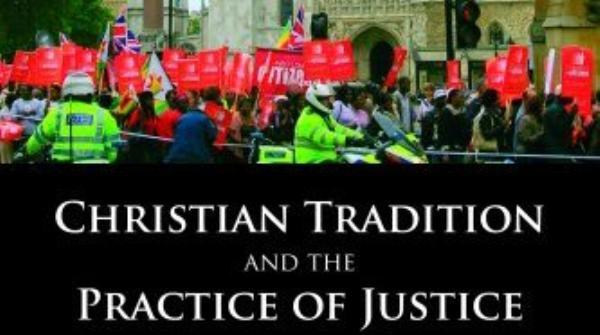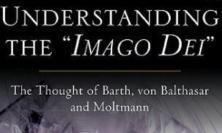The Revd Dr Nicholas Sagovsky’s latest book, Christian Tradition and the Practice of Justice is a comprehensive, scholarly analysis of a theology of justice. The central argument is that there are four key strands to the Christian idea of justice, evident in the evolution of the concept from its beginnings in Greek and Roman culture, through to interactions with contemporary secular notions of justice: the maximisation of freedom; the rule of law; the meeting of need; and responsible action. To be implemented successfully, Christian justice must interweave all four strands, a challenge which in a liberal, multi-faith society sparks questions about the ownership and chronology of justice: whose justice is to be brought about? And when will justice be brought about? Although Sagovsky does not attempt here the project of engagement between a Christian theology of justice and the ideas of justice with which, if it is to be brought about in a liberal society, it must engage, his book sets down a significant framework that practitioners and theologians will find useful when presenting a coherent message of what constitutes Christian justice, and how it may differ from other concepts of justice. In this way, Christian Tradition and the Practice of Justice is a substantial resource for Christians who wish to understand, analyse and express the ideas of justice that they have inherited, as well as being – although this is not an explicit aim of the book – a robust entrance into the world of Christian justice for those who are coming from positions of different faiths or none.
The book is comprised of the analysis of a narrative of major thinkers ranging from the Greek tragedians Aeschylus and Sophocles, through Aquinas and Augustine to contemporary thinkers from the social sciences: Martha Nussbaum, John Rawls (whom Sagovsky devotes a chapter to in consideration of the concept of justice as fairness) and Amartya Sen. Books of this intellectual depth are hard ones to target: if they become too entrenched in the canon of thinkers then their audience becomes restricted to academics and theologians; on the other hand, concepts of this depth demand the academic rigour that will allow them to enter into conversation with other areas of intellectual study. It is fortunate that the clarity of Sagovsky’s prose is supplemented by the decision to include highly discursive endnotes for those who wish to pursue further the thinkers on whom he draws, rather than footnotes which tend to disrupt the flow of reading for non-academic readers. One of the few flaws emerges from this awareness of the two likely audiences for the book – both lay Christians without this depth of background and academic theologians – in that Sagovsky spends considerable time describing the arguments of the various theorists with whom he engages: perhaps too descriptive for the academic reader who is waiting for the kernel of analysis, and not descriptive enough for the reader for whom the book is a first introduction to Sen and Nussbaum. However, it is still encouraging to see a top class mind seeking to engage with a non-academic audience without dumbing down the message into “popular science/philosophy/religion”. If the book makes for slow, serious reading, it is because its content demands that.
The four strands of Christian justice that Sagovsky proposes delineate where the Christian concept of justice deviates and overlaps with secular notions of justice. The engagement with Rawls, who has long been the central figure in contemporary secular discussions of justice, lies at the heart of the book. The Rawlsian doctrine of what a fair society would look like if the actors engaged in creating it had no knowledge about where they would fit in terms of social hierarchy, has held immense sway over liberal conceptions of justice; what Sagovsky argues is that although a Christian justice may share some of the desired outcomes of Rawlsian justice, the two traditions deviate when it comes to the role of the “liberal society”. Sagovsky argues that Rawlsian thinkers present liberalism as a comprehensive end in itself: not something that the Christian tradition could accept as an ultimate aim for justice. The extent to which Christian justice can agree is to hold up the liberal model as the best framework within which the project of justice can take place. Unfortunately, Sagovsky does not engage with the issue of finding a language with which the question of the universality of his four strands of justice can be discussed (i.e. their applicability to the liberal society within which different voices present their unique, comprehensive doctrines); he ends the chapter on Rawls with the conclusion that “in the end, the ground that I shall have to give for that is theological rather than philosophical; [the strands of justice] can all be traced back to God.” I use the word “unfortunately” to describe his resistance to engaging in this enterprise only because the quality of his writing on Rawls suggests that the outcome of that thought process would be very interesting.
Other questions that emerge from the tension of advocating a comprehensive, theocentric doctrine of justice in a liberal society include the question of whose justice will be delivered. In the chapter on the Old Testament’s concept of justice, Sagovsky engages with the critiques of power that have been born from feminist and post-colonial discourses: namely that justice, if administrated by those powerful enough to resist opposition, becomes a force for dictatorial and divisive power. Ultimately, this problem is solved theologically – the final chapter meditates on the community of justice found in the Eucharist – and is absorbed into the longer narrative of eschatological justice. When will justice come is a common complaint of the Psalms and one which, if answered irresponsibly, can result in the crime of inaction (because “everything will be alright in the end”). Although Gutierrez does not feature heavily in the book, his spirit is alive in Sagovsky’s insistence on the active strand of justice, without which one cannot be alive in community with fellow women and men.
That Sagovsky does not mention his own pioneering work with those in our society who are suffering some of the worst injustices is perhaps testament to his quality as a person, but the book would be enriched with concrete examples of the expression of the four strands of justice. Perhaps, as a non-theologian, I would have liked to hear his thoughts on the practice of social justice – the theological endeavour is one that has as its aim the task of speaking about God, rather than of speaking about society – but that is a task that we can hope he will take up on a later occasion. For now, we have been blessed with a book that can provide the framework for professing the radical search for God’s peace.
The reviewer, Nathan Koblintz, is the 2008-9 IYLN Global Young Leaders Scholar.
![]() Find this book on SPCK's web site
Find this book on SPCK's web site






